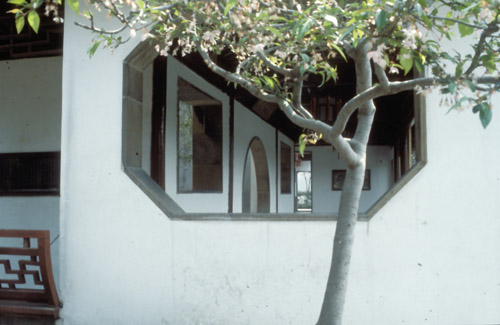Personal ethics and aesthetics
 | |
| Suzhou garden structures Qing Period (1644-1911) 2004 |
In consequence of this perspective, literati were concerned with regular customs and self-cultivation (養生). Value-driven considerations permeate daily life design, with no clear line between being and becoming, between reflection and action, between structured work and being at ease. Herein is the masterwork of literati action in the world, the combination of physical and mental conditions in moral states where ‘aesthetics’ and ‘ethics’ are inseparable.
Among the most ambitious moral projects of the literati were domestic residences that combined personal refuge, familial life and official work. These were conceived as comprehensive containers and sites for living - with family in close proximity to where one prepared documents, undertook creative work, and interviewed colleagues or subordinates.
Instead of being defined by a utilitarian programme of space allied to narrow purposes, domestic residences were defined by successive temporal events in which objects were opportunistically used. These events expressed a humanistic project of poetry and rhythm, managed with erudition and elegant wit, and allowed for distinctive personal tastes. During a pause in writing, one might prepare tea, wander among flowers, or savour seasonal incense in conversation with a friend or lover.




